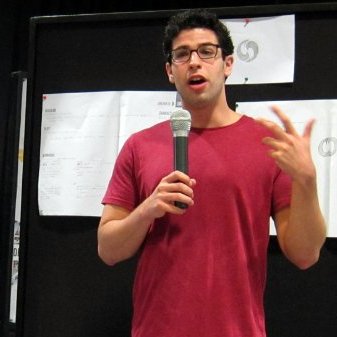After many years of traveling, living abroad, and continually challenging myself to try new things, something I've realized is that, it’s not traveling that I truly enjoy; its personal growth that comes with getting outside of your comfort zone. Why? Because when we travel time becomes distorted. One day in a foreign country can forever change the way that you think about life. One week trekking through the amazon, or taking a road trip will often be more impressionable on you than a year in university. A few months working abroad can forever shape what you want out of your career and your life.
I believe that anytime someone puts themselves outside of their comfort zone, it leads to an accelerated hyper growth; what I now refer to as “growing in dog years”. In the same way that a dog theoretically ages 7 years in a year, I believe that when we travel, try new challenging things, and get outside of our comfort zones, we grow at a more rapid pace; we grow in “Dog Years”.
You see, when we get outside of our comfort zones and try new things, we realize that time is not created equally. When time is maximized, and we pack as many overwhelming experiences into a short period of time, we grow at an accelerated rate because, quite simply, we experience more. The more that you experience, the more that you grow.
This is why when we return home from our travels it is so hard to relate to our friends. So much has taken place for us in the last year, but for them their lives have remained essentially the same. They might have a new job, or a new girlfriend/boyfriend, but in reality their lives haven’t changed much throughout the course of that last year. They haven’t experienced the same intensity and acceleration of growth because quite simply, they haven’t experienced as much.
In my opinion, it is simply because you have grown more than they have in that same year. You have had more experiences. You have learned more things. You have widened your perspective in a way that they haven’t. So you are literally no longer at the same points in your life, you have accelerated your own growth and are now years ahead of where they are. In the same year that they grew only one year, you have grown probably 3-4x what they have.
Have you ever been in a position where you look back at the last 6 months and say to yourself, “I feel like the last six months have passed by in the snap of a finger, but at the same time so much has happened and it feels like an eternity ago!” This happens because you packed new experiences into your life, which made time pass by seemingly fast, but these experiences also accumulated at an insanely fast pace, making it seem like an eternity has passed. It’s quite the contradictory feeling.
I look at it like “hacking time”. If you want to get the most that you can out of your life, your goal should be to pack in as many new experiences as you possibly can into every year. If you look back on the last year of your life, how many new things did you try? How many impressionable events can you name? How many times did you take a new trip somewhere? How hard did you push yourself at work? How many new skills did you pick up? The more things you can list out, the more that you have grown.
Take something like Vipassana meditation for example. Although it might be a mere ten days long, in those ten days you will experience years of personal growth because it is such a novel and challenging experience. When you come out, you have grown more in the last ten days than your friends who didn’t do it with you.
Unfortunately, I also think that it’s necessary to touch on hardship, because hardship has a way of manipulating time, but in a bad way. Hardships and struggle have the potential to cause adverse growth. They have the ability to debilitate people and slow life down.
Hardships have a tendency to debilitate people. Something bad happens, and we sit in our rooms and sulk. We stop working. We stop moving forward. We stop growing. Months can pass in this way. Have you ever had a friend go through a failure and take months to get over it? Or a friend who broke up with a girlfriend/boyfriend and they take a year to get over it? Or, in the worst case scenario, the death of a family member? Situations like these have the ability to slow or entirely halt your growth, and it is important to be cognizant of this.
Hardships and struggle have the potential to either debilitate or motivate, and it is up to us with how we handle these hardships. We can either use them as an opportunity to grow, or a time to recess. Am I saying that if something bad happens ignore it and keep moving? Absolutely not. I am instead saying that with every struggle comes an opportunity for growth, and in the end it’s up to you how long you let that struggle knock you on your ass, or get back up and keep fighting.
Where positive experiences speed life up and cause one to say “time flies when you’re having fun”, negative experiences have the ability to slow life down and make it seem like it passes forever. Have you ever noticed that when you are in a bad mood the day seems to pass by incredibly slowly? Or remember back to those days of sitting in a classroom and staring at a clock waiting for time to pass, and then you go outside for recess and it feels like you didn’t get enough time to play? Funny how time becomes distorted depending on our mindset and how we are perceiving our experience of said time.
This is why it is so important to schedule things into your year that will have the maximum impact on your growth. This is why it is so important to choose a challenging career path, travel and work abroad when the opportunity arises, and jump at novel experiences every time you get the chance. It’s like the phrase “getting the best bang for your buck”, but instead I look at it as, “get the most shine for your time” ;) (ok ok I’m working on it!)
Time is not created equally. It’s up to you how you spend your time on this planet, and how fast or slow you want to grow. You have the ability to grow like everyone else, or grow in dog years. Personally, I choose to get the most out of every day that I am here on this planet and grow in dog years, and I encourage everyone else to do the same :)











